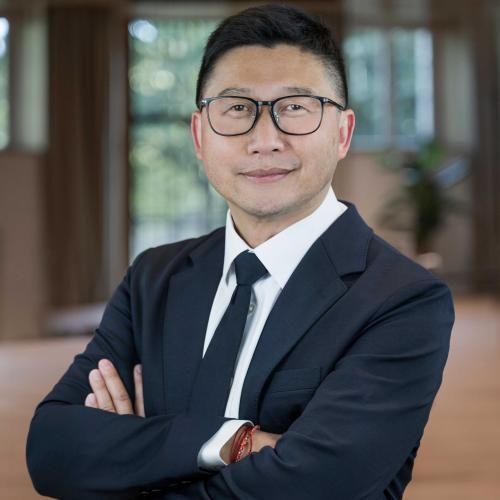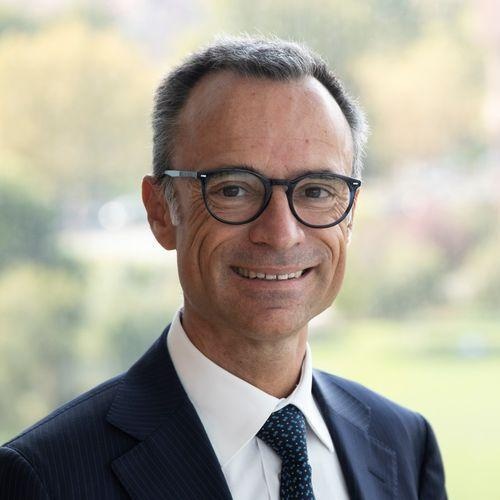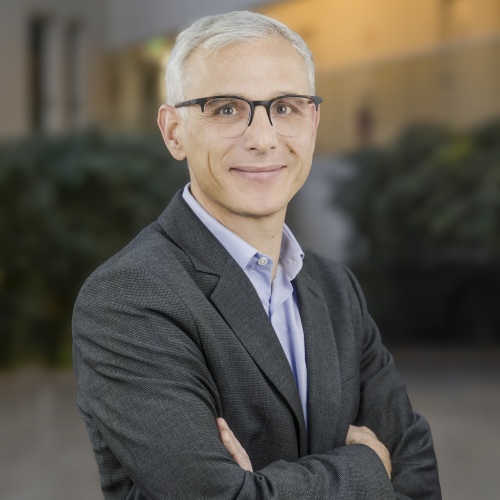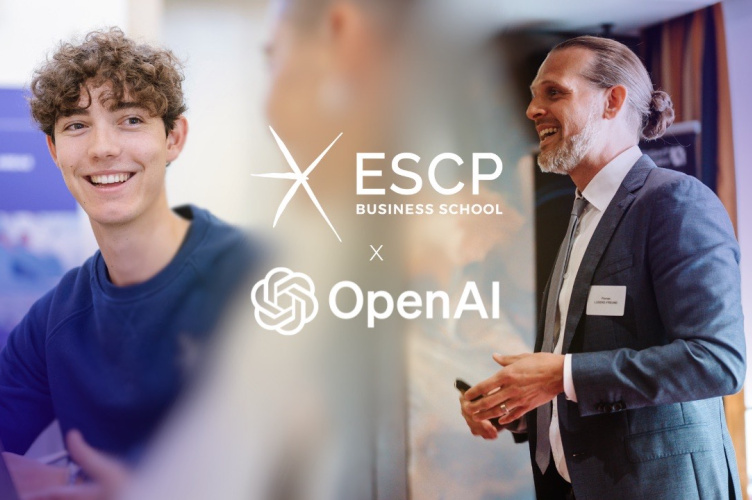From Vision to Impact:
How ESCP is Shaping the Future of Education with Generative AI
After an eight-month pilot phase, ESCP has officially rolled out ChatGPT Edu to its community as part of its strategic collaboration with OpenAI.
In October 2024, with the support of the ESCP Foundation, ESCP launched a strategic collaboration with OpenAI to explore the potential of Generative Artificial Intelligence (GenAI) in business education. As part of this initiative, the School introduced ChatGPT Edu across its campuses through an institution-wide proof-of-concept phase that invited 1,000 volunteer students, professors, and staff to experiment with how GenAI could enhance teaching, learning, research, and administrative processes in a real-world, test-and-learn environment.
Following the success of this initial phase, ESCP is now extending access to OpenAI’s most advanced GenAI platform to all students, faculty, and staff across its six European campuses, encouraging a critical, creative, and responsible application of this technology across the School’s academic and operational ecosystem.
Unlocking Innovation Across the School
"For several months now, our school has been boldly exploring the transformative potential of Generative AI. True to our identity, we’ve approached this emerging technology with rigour, curiosity, and collective intelligence," says Professor Léon Laulusa, Executive President and Dean of ESCP.
With more than 200 active projects and a fast-growing community of practice, the school is helping to shape a European model for the responsible and creative use of AI in higher education. Among the projects developed by participants in this pilot phase, four initiatives illustrate the diversity of use cases and the benefits associated with GenAI:
For several months now, our school has been boldly exploring the transformative potential of Generative AI. True to our identity, we’ve approached this emerging technology with rigour, curiosity, and collective intelligence.
 Leon Laulusa
Leon LaulusaExecutive President and Dean
ESCP Business School
In the classroom: immersive and critical learning
Professors are using GenAI to create new types of student learning experiences. One standout example is The Future of Gotham, a scenario designed by Professor Vitor Lima in which students interact with a GPT-powered Bruce Wayne (Batman) to solve complex marketing problems. This approach helps students develop critical thinking and strategic agility. “It’s our moral responsibility as scholars to research, teach, and develop AI to help people, businesses and society at large move forward to better futures,” says Lima.
In research: fostering independence and analysis
Professor Sandrine Macé is using ChatGPT Edu to help students engage more deeply with their dissertations. By experimenting with AI to test statistical models and clarify technical concepts, students are gaining new levels of autonomy in how they interpret and validate their data. “Using Generative AI in education is truly exciting. It opens up new possibilities for sharing knowledge, skills, and values,” Macé explains. “Being part of the AI Champions initiative also lets me connect with colleagues and explore new approaches to teaching.”
Among students: building confidence and fluency
Students are experimenting with how AI can play a meaningful role in their academic journey. Jiao Liu, a first-year Master in Management student on the Digital Transformation track, describes a complete transformation in how she approaches learning with AI: “I grew from being AI-illiterate to someone who now understands and collaborates confidently with AI. I’m especially excited to help my classmates explore how AI can enhance their academic work.” Her experience highlights AI’s power to support learning across cultures and languages by enhancing expression, reasoning, and idea generation.
In operations: freeing up time for what mattersIn operations: freeing up time for what matters
The potential of AI goes beyond teaching and learning. Across ESCP’s administrative functions, staff are experimenting with ways to enhance efficiency and service quality through GenAI. Akram Boudiar, Work Experiences Officer, is designing a Custom GPT to support how the team handles student requests. “By connecting the tool to our mailbox and feeding it structured data, we aim to provide faster, more personalized answers,” says Boudiar. “It’s not just about automation, it’s about offering clearer, more responsive, and reassuring guidance for our students.”
By weaving ChatGPT Edu into every discipline and core system of the school, we are forging a new model of human-AI collaboration in business education. Our early pilots prove that generative AI, when guided by rigorous pedagogy, can elevate critical thinking, discernment and creativity: AI can act as collective intelligence for the common good. As we scale up, we will open spaces like the ChatGPT Hackathons where students can test, build, and reflect. This ecosystem allows our faculty to keep redefining the skill sets that will shape leadership in the AI age.
 Francesco Rattalino
Francesco RattalinoExecutive Vice-President for Academic Affairs
ESCP Business School
Scaling Responsibly, Building Strategically
Following the success of the proof-of-concept phase, ESCP is now moving forward with a full-scale deployment of ChatGPT Edu working closely with OpenAI. This next step involves deeper integration into the School’s digital ecosystem and the attribution of more than 10,000 licenses to all students, faculty, and staff members. Priorities for the next phase include:
- Custom GPT deployment: A school-specific version trained on ESCP material
- Governance protocols: Ensuring ethical, compliant, and transparent use
- Community of practice: Peer-driven innovation across campuses
- Faculty development: Practical training for classroom and research use
ESCP’s close work with OpenAI is enabling the School to actively contribute to the evolution of ChatGPT Edu, helping to shape its development to better serve the needs of the education sector. This wider rollout is part of the School’s broader educational transformation strategy: shifting from the occasional use of AI in the classroom to a deeper reflection on how to teach and learn in a world shaped by AI.
Rolling out more than 10,500 OpenAI licenses across ESCP demonstrates our commitment to innovation anchored in pedagogical integrity. We are integrating these tools within carefully designed learning environments that put people first. This next phase deepens our collaboration with OpenAI to co-create solutions tailored to education. Expanded access will spark student creativity and drive faculty research, ensuring generative AI becomes a transformative, inclusive force throughout our learning community.
 Professor Louis-David Benyayer
Professor Louis-David BenyayerESCP AI Initiatives Coordinator
ESCP’s thoughtful adoption of AI stands out as a unique case study for other institutions—a model worth following. We've seen that for ESCP, deploying OpenAI's ChatGPT Edu is more than switching on tools - instead it's building champions, community, and empowering professors and students to push the boundaries of how AI will be used across fields and functions. They've treated their ChatGPT Edu rollout as a change management and business school transformation process, not a tech rollout, and are seeing huge impact as a result.
 Leah Belsky
Leah BelskyGeneral Manager of Education
OpenAI
Relevant links
Campuses
